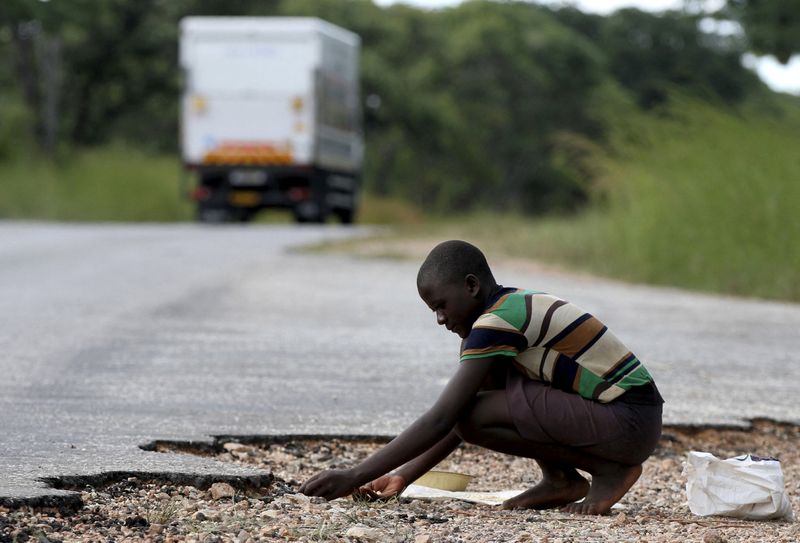By Libby George and Karin Strohecker
LONDON (Reuters) - Development agencies gathering in Washington this week face one of their toughest battles in years: getting a rich world worried about wars abroad and elections at home to commit more cash to the world's poorest countries.
The poor world's development is backsliding at an historic rate amid debt crises, higher-for-longer global interest rates and mounting investment needs. At the same time, it needs trillions more per year to meet climate spending goals alone.
At the last round of IMF and World Bank meetings in October, global leaders expected rich-world inflation to ease more quickly than it has, and thus for interest rate cuts to take pressure off financing costs.
Since then, an expanding conflict in the Middle East and the ongoing war in Ukraine have thrown up additional funding pressures, curbing the rich world's already waning appetite to spend on development aid.
"Budgetary constraint in a number of countries is increasing," Odile Renaud-Basso, president of the European Bank for Reconstruction and Development told Reuters in London ahead of the meetings. "There is more expenditure for defense and there is tension about support for development aid."
"The global situation is becoming increasingly challenging," she added.
Renaud-Basso said lenders trying to raise funds, such as World Bank's International Development Association (IDA), would provide a bellwether for the rich world's appetite to donate.
The World Bank's lending arm to poor countries is targeting record commitments above its last replenishment of $93 billion, which it used early due to the COVID-19 pandemic and the fallout from Russia's invasion of Ukraine. It has begun issuing bonds to leverage its lending.
"We've been able to do more with the same level of donor contributions," IDA director Dirk Reinermann told Reuters. "The problem is that this party is slowly coming to an end...the zero point where we are fully leveraged, it's coming closer and closer."
In its last replenishment, 52 high- and middle-income countries contributed, led by the United States, Japan, Germany, the United Kingdom and France.
But many of those are grappling with donor fatigue. France and the UK have made large cuts to overseas aid in recent years, while in the United States political battles ahead of the presidential election have stalled other foreign spending commitments, including to Israel and Ukraine.
According to a recent United Nations report, official development assistance globally hit a record in 2022, but the share of it going to developing countries fell by 2%.
"I don't think the world has ever been in such a state," said Vera Songwe, chair of the Liquidity and Sustainability Facility, a group that aims to lower debt costs for Africa.
Songwe herself worked on IDA's replenishment round during her time at the World Bank, and described a whirlwind global tour to press finance ministers, parliamentarians and other officials for funding.
It is never an easy sell, she said. But this year is different.
"Even in 2008, China was still growing then. This is much more difficult."
It amounts to a perfect storm for poor countries. In the decade after the global financial crisis, with record-low interest rates, money flowed freely and the external public debt stock in low and middle income rose to $9 trillion, from $5.6 trillion in 2012.
China during that time also opened its financial taps, lending billions via its Belt and Road Initiative. But amid simmering debt problems at home, it has since pulled back.
This has significantly narrowed the availability of affordable finance for developing countries.
"There are very few such pots of money with such low concessional rates the world over, especially pots of money that come from a multilateral lender that has certain checks and balances," said Giulia Pellegrini, a senior portfolio manager for emerging market debt at Allianz (ETR:ALVG) Global Investors.
Getting money from IDA, or another multilateral lender such as EBRD, can spur private lenders and eurobond investors to open their wallets, she added.
"Seeing a strong vote of confidence from some of these multilateral bodies, giving them concessional finance is a way to say these countries are embarking on a positive reform," she said.

Reinermann said IDA's backing from the World Bank itself and other institutions is strong. But that would not, he said, make securing commitments easy.
"Fiscal situations are not flush anywhere," he said. "Right now it looks like a real mountain to climb."